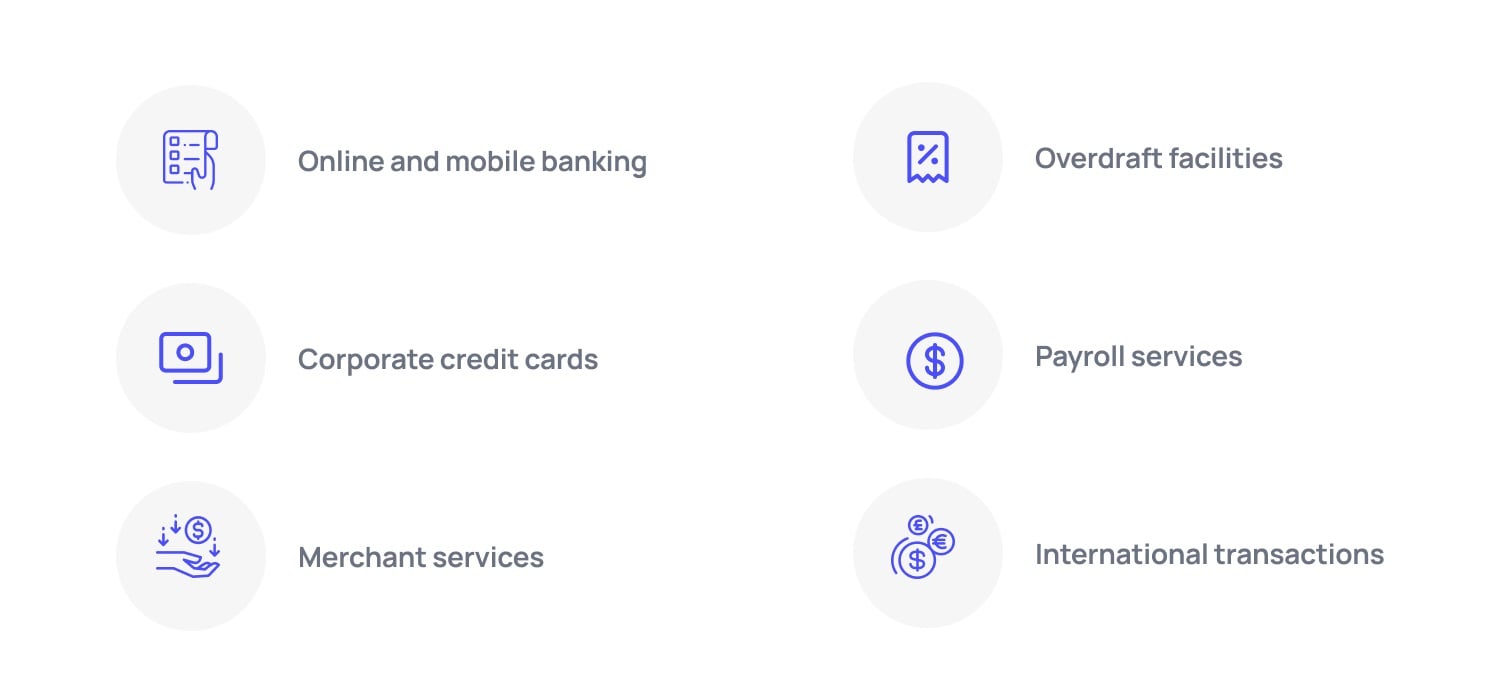Guide to opening business bank account in Singapore
Managing business finances through a personal bank account is not ideal for business owners, especially when it adds to the hassle of everyday operations. For this reason, opening a business bank account in Singapore is a common occurrence for companies that operate in the country, regardless of where its headquarters are located.
But before opening a bank account in Singapore, it’s important for businesses to understand what they need and how to make the most of their account. With many providers offering banking solutions for businesses with Singaporean branches, opening an account for business purposes is a walk in the park—provided that thorough research is done beforehand.
What is a business bank account?
Put simply, businesses open a company bank account, sometimes called a business bank account, to manage their finances.
As its name suggests, this type of account is available for organizations looking to pool their funds in one secure place, while maintaining a separation between personal and business finances. Companies commonly will have a dedicated business bank account, but businesses of all types of structures will benefit from having one.
Opening a business bank account in Singapore allows businesses to effortlessly keep a neat record of their finances without the added hassle of sorting through personal finances. In most if not all cases, having a business account from the early stages of the business is beneficial.
Types of business bank accounts available in Singapore
Before opening a business bank account in Singapore, it’s important to understand what type of account the company needs. There are several common types of accounts in the country, including a current or checking account, a multi-currency account, and a merchant account. These will help businesses manage their finances better.

1. Current accounts
● Overview
When you open a bank account for business, a current account will likely be your go-to option. As the name suggests, a current account is an account that businesses can use for their daily financial activities. These accounts typically do not include an interest and will be the account in which businesses perform the most transactions. Funds on this type of account are always liquid and accessible for the business to use.
● Features
Many of the functions that are available on a business current account are similar to those in a personal account, but business banking offers additional features. When businesses open a company bank account in the form of a current account, they will get access to features such as domestic and international transfers, payroll services, payment approvals, and more.
● Benefits
In many ways, a current account is a generic account that can be customized depending on the business needs. It also fulfills most of the company’s daily finance requirements, making it easier to perform transactions and pay vendors. Separating business finances from personal funds using a current account will ensure that the company is audit and tax-ready.
2. Multi-currency accounts
● Overview
There is no need to open multiple bank accounts to hold money in different currencies. One account is enough to load, hold, and spend money for all international transactions. Multi-currency business accounts are ideal for businesses that have a lot of activities happening overseas or those that deal with vendors and customers in a different country.
● Features
One major feature that sets multi-currency accounts apart is their ability to facilitate transactions in many currencies. Opening a business bank account in Singapore for multi-currency purposes allows companies to receive and hold funds in the currency they were sent in without having to contend with exchange rates when payments in that currency need to be made.
● Benefits
Opening a bank account for business with multi-currency capabilities enables companies to manage currency fluctuations more effectively and reduce unnecessary costs. Multi-currency accounts help businesses leverage FX rates and only exchange currencies when the rates work in their favor. Rather than being forced to put up with bad rates when it is time to make an international transfer, businesses can exchange money when the rates are good and hold funds in other currencies.
3. Merchant accounts
● Overview
Businesses looking to facilitate electronic customer payments must open a merchant account in Singapore. With a merchant account, customers can pay with a debit or credit card. The funds will then be held in the account as the payment is verified, with funds only transferred to the business’s main bank account and usable once the verification process is completed.
● Features
Funds in a merchant account are only stored temporarily, as the end goal is to transfer funds to another bank account that the business uses for everyday transactions. When a card payment is made, the merchant account will hold the funds. The business’ current account will receive the money only after the transaction is verified.
● Benefits
Providing alternative payment methods that are convenient for customers is key to improving business sales. A merchant account enables businesses to reach a wider audience while facilitating hassle-free transactions. Rather than contending with confusing processes and high fees, businesses will also save money in the long run by processing payments through a merchant account.
How does business bank account work?
Business banking assists organizations and companies in making the best financial decisions possible. Business banking is a fast expanding area, as more and more businesses choose to have a corporate bank account.
Opening a bank account for business helps financial institutions support both large and small firms in making better use of their assets and making prudent financial decisions based on their current balance and creditworthiness. One of the most crucial aspects is that business banking safeguards your company's position. Business bank accounts for LLCs and businesses serve as proof of your company's legitimacy.
As a result, banks will provide your organization with extra services. Small-term loans, low-interest credit allowances, and even payroll administration are among the services available. Business banking is also safer and less vulnerable to fraud.
Suggested read: What is a virtual account, its working and benefits
Who can open a business account in Singapore?
To open a business bank account in Singapore, the primary requirement is naturally to first own a business. Individuals who are not intending to use their business accounts for business purposes will not be allowed to open one.
The specifics for each business account, however, will greatly depend on the provider and the type of account. There may be additional requirements to open a company bank account, such as a minimum number of employees or annually generated revenue.
Some banking providers may not cater to all business structures or have different types of accounts that different businesses are eligible for. A company bank account will generally not be available for sole proprietors or partnerships, requiring the business to be an incorporated organization.
Freelancers and non-incorporated businesses may have to look for alternative business banking options that cater to their needs. The bottom line is to check with each provider, as there will be different options for different structures.
Keep in mind that there may also be additional requirements and documents for foreign business owners. For example, opening a business bank account in Singapore requires foreigners to have a valid work visa. Some may also require proof of a residential address, which can pose a problem if the business owner is not physically in Singapore but can be mitigated provided that one of the company’s directors is located in the country.
Related read- How to register a company in Singapore in 2024?
When to open a business bank account?
There is no fixed timeline for when an organization should open a business bank account, but doing so at the start of its operations will significantly streamline business banking and make day-to-day performance easier to manage. Not only is it a good practice to separate business finances from personal funds from the beginning to get used to it before the business grows, but it also helps when historical data is needed.
Rather than having to migrate data from a previous personal account and transition during a busy time in the organization, opening a bank account in Singapore specifically for business purposes early on ensures that every business transaction is made on the appropriate account.
Do you own an overseas corporation and regularly do business in Singapore? Try opening a offshore business bank account for your business.
No more multiple bank accounts for managing business expenses
Why does every business need a dedicated business bank account?
It’s a common misconception that only big businesses need a dedicated business bank account. However, the reality is that all businesses can benefit when they open a bank account in Singapore. The simple act of separating business and personal funds will help every company with many other business tasks, such as auditing and tax filings.
Separates business and personal finance
One of the best ways to maintain good business financial health is by making sure that the company’s finances are entirely separate from any personal finance activities.
Businesses will also get a number of other benefits, such as easier tax filings and finance reporting, by separating business and personal finances.
Opening a business bank account in Singapore is crucial to maintain this segregation of funds. All money in the account will be specifically for business purposes.
Builds business credit history
It’s difficult to build a company’s credit score when it doesn’t have its own business banking account. Credit cards and other loans that are linked to a personal account will only contribute to the account owner’s credit.
To build a proper credit history for a business, opening a business bank account in Singapore is highly recommended. Any negative personal credit history will not impact the business and vice versa.
Facilitates easier business transactions
Open a business bank account in Singapore to facilitate easier business transactions. Not only does a business account separate funds and make it clear that company expenses should be made on company funds, but businesses may also get additional features that aid with transactions.
For example, some banking providers enable scheduling payments in advance and setting up automatic recurring payments with their business accounts. Having multiple signatories is also ideal for businesses.
Enhances record-keeping and financial tracking
Financial tracking is already a challenge, but it’s worse when the finance team has to sort through all kinds of transactions, both personal and corporate.
The best way to solve this problem is by making sure that the business can open a company bank account to separate business funds from any personal transactions. This also allows businesses to keep better track of their financial health and avoid overspending.
May be required for business loans and licenses
It’s recommended that businesses operating in Singapore open a business bank account as soon as possible to get the best options when it comes to loans and licenses. Businesses may not be able to apply for some licenses without a designated business account, which can significantly hamper operations.
Even with the right licenses, it’s still difficult to get loans and credit facilities with a personal account. Making the switch to a business account provides more options.
Regulatory compliance & tax efficiency
Depending on the type and model of the business, business owners may be required to have a business bank account to operate smoothly in Singapore. Even when it is not required to open a bank account in Singapore specifically for the business, it is still recommended.
Not only will it be easier to manage tax filings, but businesses are also less likely to run into compliance issues with a dedicated account for company finances.
Access to business banking services
Most banking providers offer services that are unique to business banking, which companies cannot access unless they have a company account. For many businesses, it is worth it to open a business bank account to get these services.
While online and mobile banking are now available for most types of accounts, with a business account companies will be able to get more payment methods, organizational tools, overdraft facilities, and more.
What factors should be considered when opening a business bank account?
Opening a business bank account in Singapore has a lot of merits, but businesses must also choose smartly to get an account that fulfills their banking needs.
While some factors such as account features and fees may be obvious considerations, there are other factors that businesses should carefully consider before making a decision.

1. Bank requirements and eligibility
Each bank or financial institution that provides business banking services will have its own set of requirements. While some banks may allow business accounts for freelancers and sole proprietors, others may only offer it for incorporated companies.
Before even choosing which partner to open a company bank account with, make sure to look at what each bank’s requirements are. Further research on each provider should come after the organization is certain it is eligible to open an account.
2. Account features and services
Once a business finds out which bank accounts it is eligible for, the next step is to determine what features are required to fulfill the business needs. Consider the basic features the account offers as well as any additional services.
The ideal bank account should meet the company’s requirements to streamline its finance processes. To ensure this, businesses should evaluate their needs carefully before open a bank account for business. Features they may require include, but are not limited to, online or mobile banking, international transfers, and overdraft facilities.
3. Fees and charges
Between the annual fee, transaction fees, international money transfer charges, and costs of additional banking facilities, and several other charges involved in business banking, it’s necessary for businesses to thoroughly research the charges associated with any particular account.
This information is typically easy to find either on the provider’s website or by scheduling a meeting with a representative. Choose a business bank account that fits into the company’s budget. It’s also good practice to weigh the fees against the account’s features.
4. Minimum balance requirements
Beyond the deposit, most banking providers also require businesses to keep a predetermined minimum balance. Those that go below that minimum balance can get penalties, such as an additional fee as a consequence of not keeping the balance.
What each business requires from a bank account will depend on its needs, which is why it’s important to consider the minimum balance requirement before opening a bank account for business and decide whether it is viable for the organization.
5. Accessibility and convenience
No one wants to open a business bank account that inconveniences the organization, especially when the goal of having an account is to streamline business banking. For most modern businesses, it’s best to get online access to enable business banking from anywhere.
There are also many banking providers that offer mobile banking capabilities, which help with certain expense management processes. Ideally, businesses won’t have to go to a bank branch to initiate every transaction.
6. Customer service and support
Another key part of a good business banking account is its customer support facilities. Ensuring that the banking solution can provide sufficient customer service and support helps businesses when there are issues that need to be addressed immediately.
While some banks may have better features than others, it’s good practice to check out customer reviews and testimonials to see whether the features are fully functional and businesses get the support they need.
7. Security and fraud prevention
When opening a bank account for business, a company’s top priority is to avoid potential fraud attempts. Given that the amount of money a business will put into a bank account is generally higher than individual funds in personal bank accounts, security measures become even more important.
Look for security measures such as two-factor authentication and user permissions. Encryption is also a necessity when it comes to business banking. Some banks may offer zero liability for misuse and fraud.
8. Account opening process
When opening a business bank account in Singapore, businesses will ideally want a process that is overall simple and not time-consuming. Depending on when and why the organization needs the account, a shorter verification and review process may also be preferable.
Luckily, there are many modern banking solutions that offer a fully online application process, which does not require an executive of the business to visit a bank branch to open an account.
9. Regulatory compliance
With the rise of financial technology and modern banking solutions, there are so many options on the market that businesses can choose from. However, it’s important to keep in mind each institution’s regulatory compliance.
Make sure that the business banking solution of choice has the necessary certifications and licenses. The provider should operate within Singaporean regulations and comply with governmental and industry standards. This also ensures that the company does not run into banking compliance issues.
Keep track of your company finances with Volopay's business account
Documents required to open a business bank account in Singapore
Each banking provider will have its own list of requirements, but there are a handful of documents that most if not all banks will ask for when opening a business bank account in Singapore. Here are some documents that businesses should prepare in advance to ensure that the business account application process goes smoothly.
Company registration documents
While some business accounts are available for freelancers or sole proprietors, those who are looking to open a company bank account will have to provide the company’s registration documents.
This signifies that the organization is registered as an incorporated and limited liability company.
This is mainly important when the banking provider does not serve businesses with other structures.
Memorandum and articles of association
Similar to other company registration documents, the Memorandum of Association proves the registration and setup of the company.
However, this document is specifically required as it is a legal document with details on the company’s structure and shareholders.
Articles of association that detail how the company is run may also be asked for by the bank.
Tax Identification Number (TIN)
As with opening most bank accounts, a Tax Identification Number, or TIN, could be required for a business account. Typically, this number would be the business’ TIN.
Some providers may also accept the business owner’s TIN if the business does not have a Tax Identification Number yet, but be sure to check with each provider to ensure compliance and smooth processing in documentation.
Ownership and partnership agreements
Many businesses have multiple owners, with some also being in partnerships with other entities or individuals, thereby diversifying the ownership structure.
If there are many parties controlling the business, the bank will want to know that everyone is in agreement about the decision to open a business bank account. A written agreement also signals who will be in control of the funds in the account.
Business licenses or permits
Depending on the industry the business operates in, there may be additional licenses or permits required, which are sometimes even a requirement before the business is registered to operate in Singapore.
In these cases, the business will be asked to provide these documents. Banking providers will want to know that their customers have all the necessary licenses to operate.
Proof of business address
Most Singaporean banking providers require businesses to operate in the country to open a company bank account.
To satisfy this requirement, the company will be asked to provide a business or office address.
However, the address itself may not suffice. Documents such as a lease may be required to serve as proof of the business address.
Identification documents
Although opening a business bank account in Singapore means that the account will be under the company’s name, the business owner(s) will still have to submit identification documents.
These measures ensures compliance with regulatory requirements, serve as proof of the owners’ identities and include documents such as a government ID, passport, or documents that verify the owners’ residences.
Credit score information
Not every organization will already have a credit score or credit history, especially if this is the company’s first bank account and it is a new business in the early stages of its operations.
In this case, the banking provider may ask for the business owner’s credit score information, which serves as a key factor in determining business's eligibility for banking services and establishing financial standing.
How to open a business bank account in Singapore
Businesses will find opening a business bank account in Singapore easier if they know what to expect from the process. With the number of banking providers available in the present day, it is also necessary to thoroughly research the options and application processes of each provider. Here are some necessary steps.
Research and compare bank options
There are plenty of modern banking solutions available for businesses operating in Singapore.
However, it’s unwise to simply pick the first bank account that shows up in the searches. When opening a bank account for business, it is advisable to conduct in-depth research into each banking provider being considered.
Make sure to compare and contrast the features to determine which option is best suited for the organization. It is also recommended to list must-have features to compare against the options available.
To gain more insights and compare different business bank account options, check out our blog on Best business bank accounts in Singapore in 2024.
Decide the type of account you will open
Business banking providers often offer more than one type of account. While a checking account is useful for daily business transactions, some companies may also be interested in a savings account.
Other options such as multi-currency accounts can also be more beneficial for businesses that conduct a lot of international transactions. Weigh the different features against each other and decide which account will be most useful for the business.
Gather necessary documents
Before a company can open a business bank account, it’s important to ensure that all the necessary documents are in order. This helps streamline the application process and eliminates delays caused by incomplete documentation.
Different banking providers will have different requirements, so make sure to ask a representative for the details. Some common documents that businesses should prepare include business licenses, registration documentation, documents that serve as proof of identity and residency, and more.
Schedule an appointment
Many banks and financial institutions in the present day offer flexible application methods, with some applications being easy to complete fully online. However, for most businesses, it’s still best to speak to a representative from the banking provider.
Scheduling an appointment with a representative will help businesses get a better understanding of what the application process looks like when they open a bank account for business. It could also provide insights on which account the bank thinks is best suited for the business.
Complete the account application form
Each provider will have a unique application form, with some available and can be completed fully online, while others require a bank branch visit. Regardless, businesses that are in the process of opening a business bank account in Singapore will have to correctly complete the application form.
When meeting with a representative of the provider, make sure to address all queries and find out how to properly fill out the form.
Submit required documentation
The reason why it’s crucial to prepare all the necessary documents during the previous step is to ensure that there are no delays when submitting the application. Compile all the documents accordingly and submit them along with the completed application form.
The average wait time to get the application reviewed is 1-2 weeks, but this may vary from provider to provider. Stay in touch with a representative to get updates on the process.
Deposit the required amount
Once the application form and required documents have all been submitted, the bank or financial institution will first verify that the form is complete and correct. The company will then be asked to deposit the required amount to open the account.
In most cases, opening a bank account in Singapore will prompt the user to deposit a minimum amount. Business accounts are no different. Make sure to ask how much money is required.
Await account activation and online banking access
Even after getting the application approved and making a deposit, most businesses will not be able to immediately use their bank accounts. They have to wait for the provider to activate the account and provide access.
For online banking, businesses will be given a login ID and instructed to make a password. If there are multiple users, each user may have their own login ID and password to access the online banking platform, which is an important step after opening a bank account for business.
Suggested read: Best business bank account for eCommerce in Singapore
Enjoy hassle-free account opening with Volopay
Business bank account fees and charges
While the exact fees when opening a business bank account in Singapore will depend on the banking provider, there are some types of fees and charges that most if not all banks will charge. To avoid hidden fees that may drain business savings, it’s important to understand what all the fees are and research them thoroughly.
Administration fee
Common administration fees for a business bank account include a monthly or annual account fee, an account opening fee, inactivity fees, and others. When researching business accounts, it’s important to check what administrative fees apply.
Generally, account fees are SGD 10-35 monthly, but it could vary depending on whether the bank charges monthly or annually. Administrative fees may also be waived in the first few months of opening the business account.
Automated payments
With a business bank account, businesses can automate payments by pre-approving them or scheduling recurring payments in advance. However, these may incur a fee depending on the banking provider.
Ideally, a company will not have to pay extra fees to take advantage of these business banking services. If the company has a lot of payments it would like to pre-approve or schedule in advance, pick a bank that does not charge extra for automated payments.
Manual payments or checks
Although some banks have additional costs to automate payments, generally manual deposits or processing checks can be more expensive, especially for those opening a bank account for business. This is due to the fact that employees will have to first visit a bank branch to interact with a teller.
Teller-assisted banking often comes with a hefty fee. Be sure to check what the fees are, especially if the business is one that relies heavily on checking and other services at the bank branch.
Minimum balance charges
If the minimum balance requirement is met every month, the minimum balance charges will not be an issue. However, businesses that cannot meet this predetermined requirement will typically have to pay a fee as a penalty.
When opening a bank account in Singapore, a representative of the banking institution will likely explain what the minimum balance is. Avoid these charges by meeting the requirement, but it is also wise to open an account with a low penalty fee.
Cash payments
Cash payments are a fee type that businesses will have to pay when making cash withdrawals or deposits. If an employee withdraws some of the account’s money from an ATM, cash charges may also apply.
It’s advisable to thoroughly review what the cash payment charges are before the organization chooses to open a business bank account with a particular provider. Some providers can offer competitive rates, low fees or waive them in certain circumstances.
Overdrafts
Banking institutions that offer overdraft facilities don’t do it for free. While overdrafts are helpful when managing cash flow, they also come with a cost. Businesses opening a business bank account in Singapore should keep in mind that on average, this fee is around SGD 20.
Depending on the bank or financial institution, however, this can range from between SGD 10 to 50. Rather than a flat fee, some banks may also charge a percentage of the transaction amount.
Additional services
Many business bank accounts in Singapore provide additional services, starting from auto-generated financial reports to insurance.
However, not all of these services will be available for free when you open a bank account for business. While some providers may offer free additional services, others will have an additional cost for these add-ons.
Fees for these services will depend on the provider, but be sure to pick a provider that offers the necessary services at a reasonable cost.
International transactions
It’s a great idea to open a company bank account that offers international transaction capabilities, especially for businesses with a lot of customers, vendors, or partners overseas.
However, international transactions are known to be costly. Before opening a business bank account in Singapore, ensure the provider's international transaction fees and foreign exchange rates fit within the company’s budget.
High fees can add up with frequent international transactions.
Advantages of having business bank account
Many banking features are available to businesses only if they open a business bank account. Besides separating business and personal finances, businesses can also get perks such as streamlined reporting, easier auditing, and more. More financing opportunities and payment options also become available after opening a business bank account in Singapore.
1. Ease in acquiring financing
Companies that are trying to get a loan or credit should strongly consider opening a business bank account in Singapore. By separating business finances from individual finances, it is much easier to achieve cleaner financial statements.
Personal expenses will not be taken into account when the business bank statements are being evaluated for financing. Having a business account also helps improve how loan providers perceive the organization as it signals legitimacy and professionalism.
2. Accessibility for partners and employees
Rather than providing personal account information, companies that have a business bank account can simply use the business account information. This allows partners to easily get the data they need.
It is also simpler for employees to access a business bank account. With the ability to have multiple signatories, the finance team will not have to continuously chase after one particular executive. Many modern business banking solutions also offer a web dashboard to manage the account.
3. Accepting various types of payments
When a personal account is used for business purposes, bank transfers will typically be the only payment method a business can accept. However, when the organization chooses to open a business bank account, it opens up a variety of payment options.
Customers will be able to make payments through cards, transfers, and even digital wallets or other payment gateways. These options are designed specifically for business entities and therefore only available with business accounts.
4. Separating your personal and business finances
The biggest draw of opening a bank account in Singapore specifically for business purposes is that it allows companies to keep finances separate from any personal account usage. This minimizes the risks of misusing company funds for personal purchases.
It also allows businesses to streamline reports, statements, and taxation. Accounting is much easier to perform when the finance team doesn’t have to manually separate business activities from personal ones.
5. Professionalism for your company
Opening a business bank account in Singapore helps companies that operate within the country portray professionalism. Potential vendors, customers, and partners are more likely to trust an organization that has a bank account under its own name to manage finances.
When customers have to send funds to a personal account under someone else’s name, they may be reluctant or think that the company is not a legitimate entity.
6. Simplified money management
Centralizing all company finances through opening a business bank account will simplify the way businesses manage their money. Everything can be easily viewed and controlled through one account, without having to manually separate business activities from personal ones.
With the help of a bank account dashboard, businesses can perform all their necessary finance-related tasks in just a few clicks. Many modern banking solutions also have additional features that make managing business funds even simpler.
7. Easier auditing and financial reporting
Open a company bank account to ensure audit seasons go as smoothly as possible. Rather than having to sort through each individual account activity, companies can rest assured that all transactions on the account are business-related.
Make monthly, quarterly, and annual financial reporting easier and get a streamlined audit trail with a business account. Not only is manual reconciliation easier, but business accounts may also offer automatic reconciliation tools.
Common challenges and solutions when opening a business bank account
Although opening a business bank account in Singapore is highly recommended over using a personal account, keep in mind that there may be challenges along the way.
Know what some of the common challenges are and understand how to overcome them with these equally common solutions.
Gathering required documents
● Challenges
Due to the number of documents that a business will have to gather and present to open a company bank account, this step can prove a bit of a challenge. Some businesses may not have them readily available.
● Solutions
It is recommended for businesses to prepare the required documents for a business account prior to starting the application process. This will help get everything in order and streamline document collection, preventing delays during the application.
Meeting minimum balance requirements
● Challenges
Some banking providers may require an initial deposit that the customer has to meet before they can open a bank account for business. There may also be a minimum balance that the company has to keep each month.
● Solutions
Make sure to choose an account with a minimum balance requirement that suits the business needs. There are also providers that have no initial minimum balance requirements or fall-below fees, which may suit some businesses better.
Choosing the right account type
● Challenges
With the amount of banking solutions available for Singaporean businesses, choosing the right account can be daunting. Businesses that are looking for an account to perform daily transactions on will not benefit from something like a savings account.
● Solutions
It’s important to do the necessary research before committing to open a business bank account. List out what uses the company requires a business account for to ensure the account can be used for the business’ primary intended use cases.
Additional services offered by business bank accounts
Before opening a business bank account in Singapore, it’s good practice to get a better understanding of the services that companies can get with a business banking solution. Businesses can access payroll services, international transactions, and more. Common functions such as online and mobile banking are also provided with most business accounts.

Online and mobile banking
Having to go to the bank branch every time there is a transaction to process is no longer feasible for the fast-paced business landscape in the modern day. As a result, online and mobile banking are no longer considered add-ons, but rather necessities for most business bank accounts.
While they can be viewed as additional services, it is recommended for businesses to get an account that allows easy online banking without the hassle of going to a bank branch.
Overdraft facilities
Overdraft facilities are handy for maintaining business cash flow, especially if the company needs a quick short-term loan. If there is an invoice that needs to be paid for immediately but the business is still waiting on funds that customers will only pay in a week’s time, for example, an overdraft can be a lifesaver.
However, keep in mind that overdraft facilities come with a cost. It is advisable for businesses to not use this facility frequently to save funds, especially when considering options for opening a bank account for business.
Corporate credit cards
Bank transfers and checks are hardly the only popular business payment methods. With credit cards’ increasing popularity, it is not uncommon for businesses to get corporate cards for their expenses. To apply for a corporate credit card, a business bank account is usually required.
Easily process transactions without forcing employees to pay out of their own pockets. Cards can be linked when businesses open a company bank account, which will be used to settle the credit bill.
Payroll services
One banking service that is not needed by personal accounts is the ability to manage and process the payroll. This service is almost exclusively only provided to organizations with business accounts.
Having payroll services enables businesses to easily input the salaried amount for all their employees and process all payments in one go, all fully online. Some banking providers may also offer automated tax calculations as part of their payroll service, making it an important consideration when opening a bank account for business.
Merchant services
Merchant services are a type of service that businesses will acquire when opening a merchant account.
Some may also find this service consolidated with a current account, enabling businesses to only open a single account to manage everyday transactions and get merchant features.
Opening a bank account in Singapore with these services will make it easier for businesses to facilitate card payments and offer more secure payment methods to their customers.
International transactions
Businesses that work with foreign vendors or sell to customers internationally will likely require a way to receive and send money on a global scale. Luckily, most banking providers in the present day will offer international transaction capabilities.
If this is a must-have for the company, consider a bank account that has good exchange rates and affordable international transaction fees. Ease of use and convenience are also key factors when opening a business bank account in Singapore for foreign transfers.
Easily manage your finances with a business account
Why should you choose Volopay business account?
Volopay is not a traditional bank. It is superior to a bank since it provides all of the advantages of a business bank account while also providing a broader choice of services and options.
Choosing the right bank account for your business is key to simplifying your finances. Get more than just a place to store your funds — automate your business fund management and say goodbye to lack of transparency, time-consuming manual work, and complicated wire transfers. Volopay has all you need, all in one place.
1. Simplified expense management
Separate your business and personal finances to streamline the way you manage the company’s expenses.
Opening a business bank account in Singapore with Volopay not only provides your business with a separate account for company funds but also opens up doors to new facilities, such as automated expense reporting and approvals.
Skip the hassle of manually separating personal and business finances. Get access to a web dashboard and mobile app to make expense management seamless.
2. Virtual & physical card flexibility
Get access to both virtual and physical cards to further streamline your business finances.
Equip every employee with a physical card that is linked to your business account and generate an unlimited number of virtual cards to manage subscriptions and vendor payments.
Multiple payment methods are available at your fingertips, with customizable settings such as card limits and expiry dates, complete with automated recurring and scheduled payment options.
3. Automated accounting integration
Skip all the hassle of reconciliation and accounting and get the work done for you.
Volopay’s business account is easy to integrate with your accounting software of choice, offering easy direct integration capabilities with Quickbooks, Netsuite, Xero, and more.
Set up continuous sync to ensure that every transaction made through your Volopay account is reflected on your accounting software. With advanced rules and automated triggers, accounting is guaranteed to be a breeze.
4. Real-time visibility
Avoid overspending and stay on top of all your business finances by enhancing visibility when you open a business bank account with Volopay. Get a web dashboard and mobile application to monitor your funds from anywhere.
Volopay offers real-time expense tracking, complete with automated records to ensure that you are always up to date with your transactions. Know when, where, and why every transaction occurred to manage your finances better.
5. Global payments
If you need to make payments to foreign vendors and suppliers in different countries, Volopay is the right solution for you. Open a company bank account with multi-currency capabilities to load, hold, and spend funds in many major currencies with ease.
Use SWIFT or non-SWIFT methods to easily settle global transfers or utilize your Volopay cards to make international payments. No more hassle and no more than one bank account is required for all transactions.
6. Advanced security features
As an ISO and PCI DSS-certified banking solution, Volopay is highly committed to ensuring your data and fund security.
With a combination of features such as login IDs and passwords, two-factor authentication, encryption, and storing your data on a cloud server, you get multiple layers of security.
Between default security features and customization options to improve your funds’ safety, you won’t have to worry about sensitive information becoming compromised. Volopay also offers corrective measures like easy card blocking.
7. Customer support
You can rest assured that your business needs are always taken care of with Volopay. Our customer support team is well-equipped to answer any questions and address issues you may have.
With live chat functions and an easily reachable team, you’re guaranteed to get the best customer support. Volopay will assist you every step of the way, from the application process, to onboarding, and even to your day-to-day account usage.
FAQs
Yes. While access to business loans or credit will depend on your banking provider or what business bank account you have, plenty of banks and financial institutions offer loans and credit with their banking programs.
Opening a business bank account in Singapore typically takes around 1-2 weeks, but it can be anywhere between 24 hours to 4 weeks. The exact timeframe depends on the provider and application process.
Depending on the banking provider, you may be eligible to open a business bank account online. This is ideal for businesses that want to streamline the application process as much as possible.
Yes. However, keep in mind that there will be certain requirements that must be met. For example, a director may be required to hold a valid work visa to apply. The business must also be registered in Singapore.
For the most part, you do need a Singaporean business license to open a company bank account in the country. However, some banking providers may have options for freelance businesses.
International transfer capabilities depend on the type of business account you have. Most modern business banking partners offer international transfers and may even have multi-currency accounts to make cross-border transactions easier.
Business bank accounts typically have more security features than traditional personal accounts. Make sure to go with a banking provider that offers features such as a login ID, two-factor authentication, and more.
Yes, though specific features will differ between providers. Any business bank account can be used to process payroll, but there are also some financial institutions that have additional payroll management features.








Trusted by finance teams at startups to enterprises.
Bring Volopay to your business
Get started now